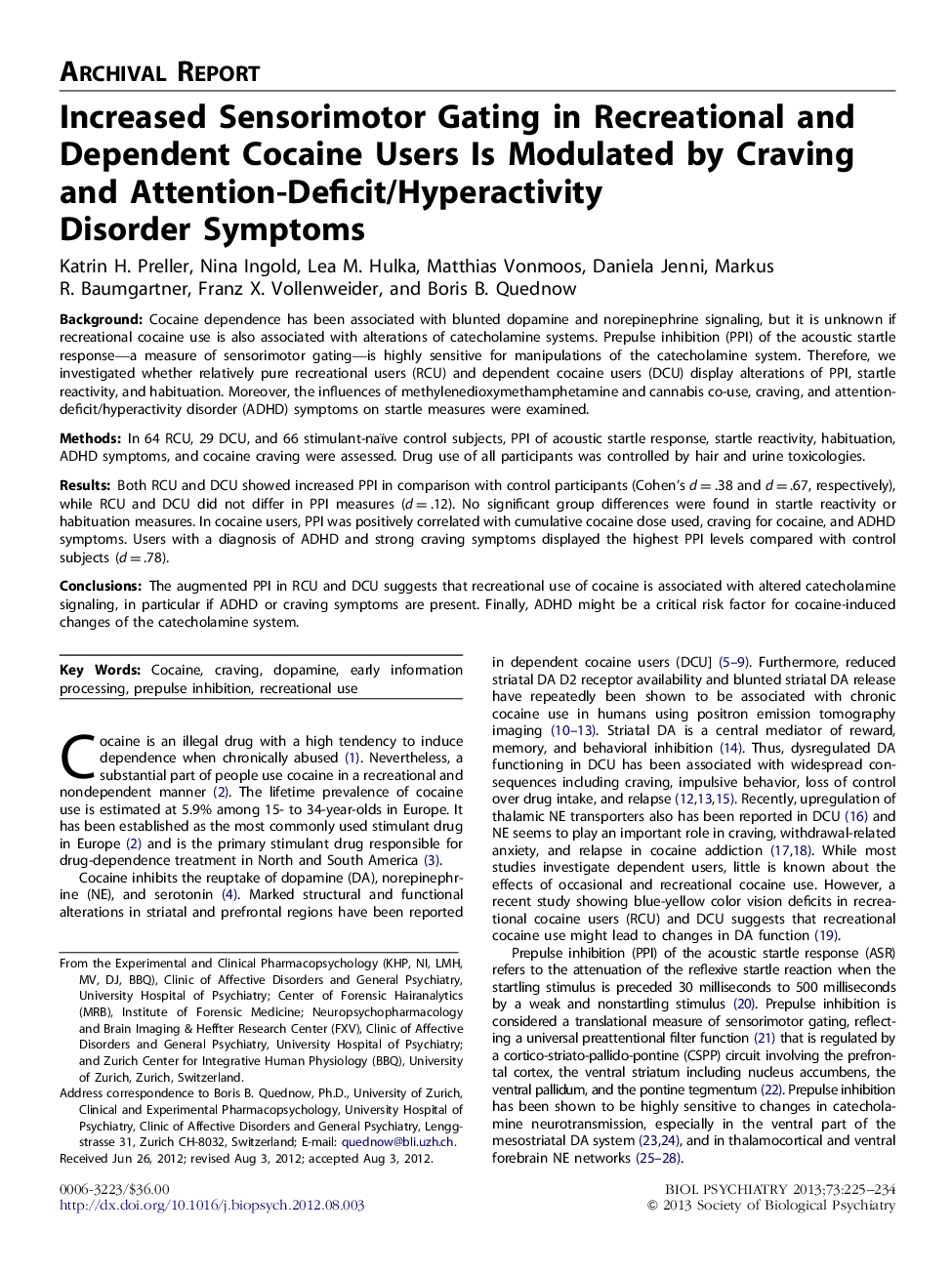| Article ID | Journal | Published Year | Pages | File Type |
|---|---|---|---|---|
| 4178085 | Biological Psychiatry | 2013 | 10 Pages |
BackgroundCocaine dependence has been associated with blunted dopamine and norepinephrine signaling, but it is unknown if recreational cocaine use is also associated with alterations of catecholamine systems. Prepulse inhibition (PPI) of the acoustic startle response—a measure of sensorimotor gating—is highly sensitive for manipulations of the catecholamine system. Therefore, we investigated whether relatively pure recreational users (RCU) and dependent cocaine users (DCU) display alterations of PPI, startle reactivity, and habituation. Moreover, the influences of methylenedioxymethamphetamine and cannabis co-use, craving, and attention-deficit/hyperactivity disorder (ADHD) symptoms on startle measures were examined.MethodsIn 64 RCU, 29 DCU, and 66 stimulant-naïve control subjects, PPI of acoustic startle response, startle reactivity, habituation, ADHD symptoms, and cocaine craving were assessed. Drug use of all participants was controlled by hair and urine toxicologies.ResultsBoth RCU and DCU showed increased PPI in comparison with control participants (Cohen's d=.38 and d=.67, respectively), while RCU and DCU did not differ in PPI measures (d=.12). No significant group differences were found in startle reactivity or habituation measures. In cocaine users, PPI was positively correlated with cumulative cocaine dose used, craving for cocaine, and ADHD symptoms. Users with a diagnosis of ADHD and strong craving symptoms displayed the highest PPI levels compared with control subjects (d=.78).ConclusionsThe augmented PPI in RCU and DCU suggests that recreational use of cocaine is associated with altered catecholamine signaling, in particular if ADHD or craving symptoms are present. Finally, ADHD might be a critical risk factor for cocaine-induced changes of the catecholamine system.
